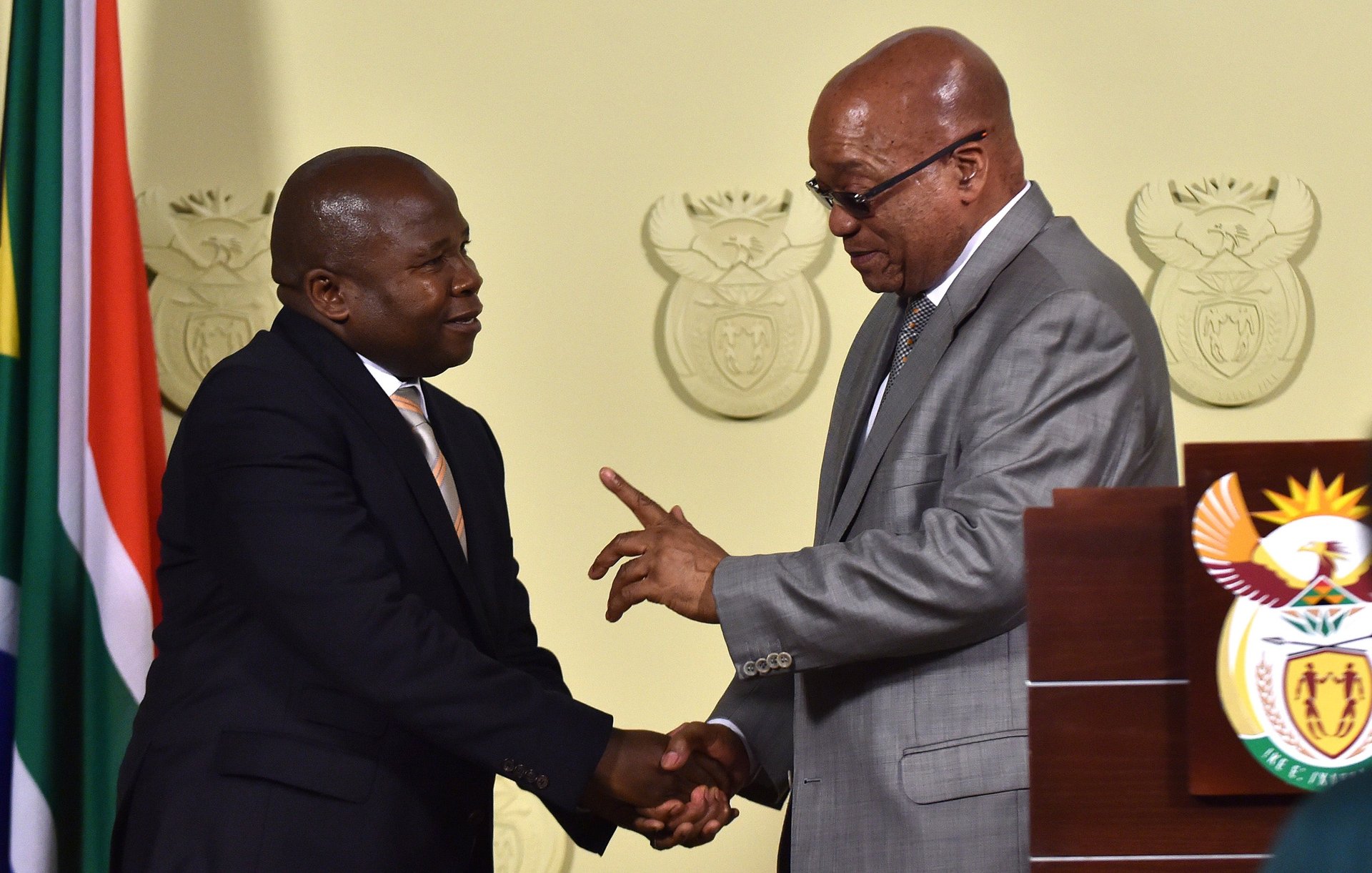The man in charge of saving South Africa’s faltering economy has barely any finance experience
Until yesterday, few people had heard of David Van Rooyen. But he is suddenly one of the most talked about figures in African finance after South African president Jacob Zuma controversially appointed him the country’s new finance chief. Van Rooyen is replacing the widely respected Nhlanhla Nene, who was abruptly dumped less than two years into his tenure late on Wednesday (Dec. 9) for reasons that remain mysterious.


Until yesterday, few people had heard of David Van Rooyen. But he is suddenly one of the most talked about figures in African finance after South African president Jacob Zuma controversially appointed him the country’s new finance chief. Van Rooyen is replacing the widely respected Nhlanhla Nene, who was abruptly dumped less than two years into his tenure late on Wednesday (Dec. 9) for reasons that remain mysterious.
Van Rooyen inherits his new role at a time of great tumult for Africa’s second-largest economy. Credit-rating downgrades, high unemployment, disappointing economic growth, ballooning public debt, and a host of other ills have cast a gloom over the country. Van Rooyen admitted as much at his swearing-in yesterday.
“Mine is a colossal assignment, coming at a time when the global economic outlook is not favorable more especially for emerging markets,” he told reporters. “We’re going to strive to make sure we improve on the achievement of those who came before us.”
The markets didn’t take Van Rooyen’s appointment well:
These nerves reflect the fact that nobody knows what to make of the new finance chief.
“I have absolutely no idea. I don’t think anyone does, which is what is worrying people,” John Ashbourne, Africa economist at London-based Capital Economics, told Quartz. “Nene was a known entity and nobody knows anything about [Van Rooyen].”
By all accounts, Van Rooyen—or Des as he is colloquially known—comes to the job with very little finance experience. Before his appointment, the 47-year-old member of parliament served as whip for two parliamentary committees responsible for finance and the economy. He also has a Master’s degree in finance, with a focus in economic policy, from the University of London.
His political experience is much more extensive, going back to the 1980s when he was involved in the anti-apartheid movement as a student activist and member of MK, the military wing of the ruling ANC party.
Van Rooyen does have some governing experience, once serving as mayor of Merafong, a municipality of 200,000 people. But he was reportedly chased out office by constituents after attempting to incorporate the municipality into the North West region. “They despised him so [much] that they fire-bombed his house and chased him and his family out of town,” one resident told the Mail and Guardian.
Parliamentary colleagues describe him as ”pleasant” and a “gentleman,” but the consensus seems to be that he was appointed to toe the party line. ”He might not be a bad guy, but his track record doesn’t fill one with confidence,” one opposition party member said. “I think he is going to be a yes man.”
Two key tests await. Will the new finance minister go along with his predecessor’s decision to reject a plea from the struggling state-owned South African Airways (SAA) for funds to lease new planes? The former finance chief thought the budget couldn’t support it. A similar test will be whether Van Rooyen approves plans to invest in additional nuclear capacity that his predecessor also considered too expensive.
“The first two tests, I would say, would be that he reiterates Nene’s deficit targets and that we don’t see any announcements about SAA or the nuclear deal in the next few weeks,” said Ashbourne of Capital Economics. “If we do hear, next week, that the government is going to invest a scandalous amount of money in a dodgy nuclear plan, that would be pretty worrying.”